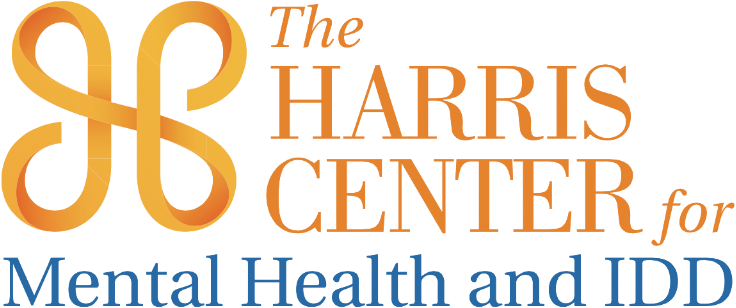
Red Ribbon Week is celebrated annually from October 23 to October 31 to raise awareness about the dangers of substance use disorders and the importance of living a substance-free life through substance use disorder prevention and education efforts. This initiative provides a unique opportunity for parents, educators, and communities to amplify the drug-free messages they impart to their children and youth throughout the year. Organizations like The Harris Center for Mental Health and IDD recognizes and participates in Red Ribbon Week by engaging in efforts to promote drug-free living, contributing to the overarching goal of creating a healthier, substance-free society.
Substance use disorder is a growing concern in today’s society, affecting people of all ages, including children and adolescents. It is a complex issue with deep-rooted causes. Breaking the cycle of substance abuse in children is a crucial challenge for parents, but with the correct approach, it’s possible to help these children overcome substance abuse and lead healthier and happier lives.
Recognizing the warning signs
Parents play a vital role in identifying the early signs of potential substance use disorder in their children. Only through early detection can they take action and help their children on the path to recovery. These signs may not always be obvious but can serve as warning signals that something is wrong.
Some common signs to watch for include:
- Social isolation: Children who start isolating themselves from family events and conversations might be withdrawing as a result of substance abuse. Pay attention if your child becomes increasingly disconnected from family life.
- Emotional changes: Substance use disorder can mimic signs of depression, but it’s important to differentiate. While children can be resilient, persistent changes in mood, a lack of interest in activities they once enjoyed, or excessive mood swings could be indicative of a problem.
- New influences: As children enter adolescence, they may seek new friendships and influences. Parents should pay attention to who their children are hanging out with and what kind of activities they’re involved in. Peer pressure can often play a significant role in substance abuse.
- Changes in behavior: Look for abrupt changes in behavior, such as increased secrecy, lying or evasiveness. If your child starts to exhibit behaviors that are out of character, it’s essential to investigate the underlying causes.
Family history and substance abuse
A family history of substance abuse can also increase the likelihood a child will also struggle with substance use disorder. There is evidence to suggest genetics play a role in a person’s susceptibility to addiction. If a child has close family members who have battled addiction, they may inherit certain genetic factors that make them more susceptible to substance use disorders. Environmental influence, such as growing up in a household where substance use disorder is prevalent, can normalize this behavior for a child. They may witness the use of drugs or alcohol as a coping mechanism, a form of relaxation, or a way to deal with stress. This normalization can make it more likely for the child to experiment with substances themselves. Furthermore, if family members with substance use disorder issues struggle with mental health problems or have experienced trauma, children in such households may learn maladaptive coping mechanisms and turn to drugs or alcohol as a way to manage emotional pain.
Authoritarian parenting styles (i.e., do as I say, not as I do) can create a high-stress environment at home. Children may turn to substances as a way to escape this stress or cope with the emotional turmoil caused by strict parental expectation. When adolescents and teens are subject to overly strict rules, they may be more inclined to rebel and engage in risky behaviors, including substance use disorder as an act of defiance. Children raised in such households may feel hesitant or fearful about discussing their concerns, emotions, or experiences. This lack of communication can prevent parents from realizing their child’s struggles with substance abuse until it becomes a serious problem. Be more authoritative in parenting, giving the opportunity for open discussions where your child can have some autonomy and feel safe.
Preventing substance use disorders in children
Now that we have discussed some common signs and factors contributing to substance use disorder in children and teens, below are several things parents can do to help break this vicious cycle:
- Open communication: It’s important to create an environment where your child feels comfortable talking about substance use disorders without fear of judgement or punishment. Be their trusted friend and confidant, and actively listen to their concerns and experiences.
- Set a positive example: Children often model their behavior after their parents or caregivers. Demonstrate responsible use of alcohol and medications and prioritize a healthy, substance free lifestyle.
- Be involved: Stay engaged in your child’s life, even as they grow older and seek more independence. Know their friends and their activities and participate in their interests and hobbies. Teach your child alternative ways to deal with stress, anxiety, and peer pressure. Encourage them to engage in activities that provide positive outlets for their emotions.
- Seek professional help: If you suspect your child is struggling with substance abuse, do not hesitate to seek professional counseling and intervention.
At The Harris Center for Mental Health and IDD, our team recognizes the transformative power of the Substance Use Disorder Outreach Program (SUDOP). SUDOP provides a continuum of care that goes far beyond the initial stages of recovery. It involves a dedicated team of professionals who work tirelessly to engage children mentally, emotionally, and physically in their recovery journey. This program ensures children receive essential counseling and psychiatric support to address both substance use disorders and co-occurring mental health issues. This ongoing support helps children not only achieve sobriety but build resilience and coping mechanisms that are important for maintaining a substance-free life.
Recovery from substance use disorder is a process that takes time. Be patient with your child, offer unwavering love and support, and celebrate their milestones and successes along the way.
For more information about SUDOP at The Harris Center for Mental Health, visit our website at:
Adult Behavioral Health Services | The Harris Center for Mental Health and IDD




